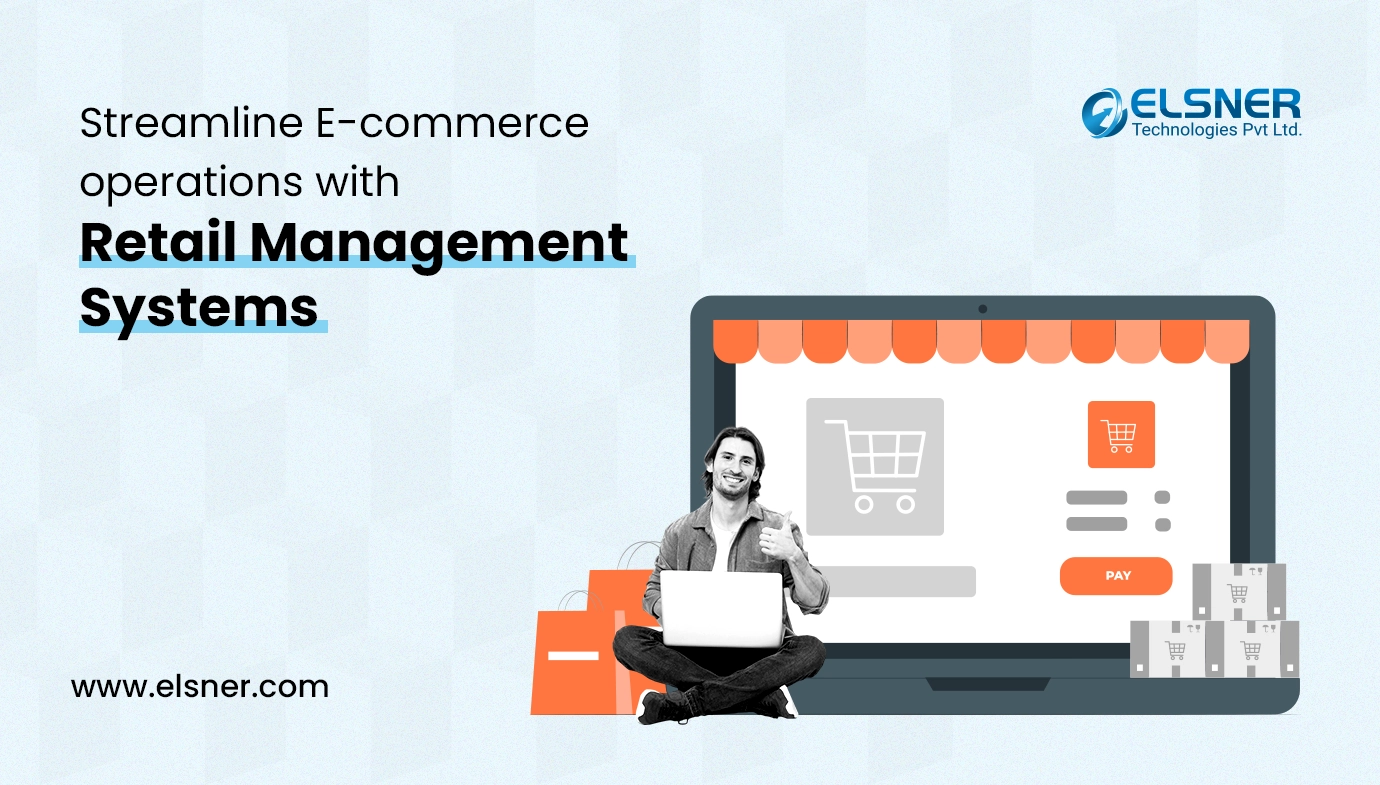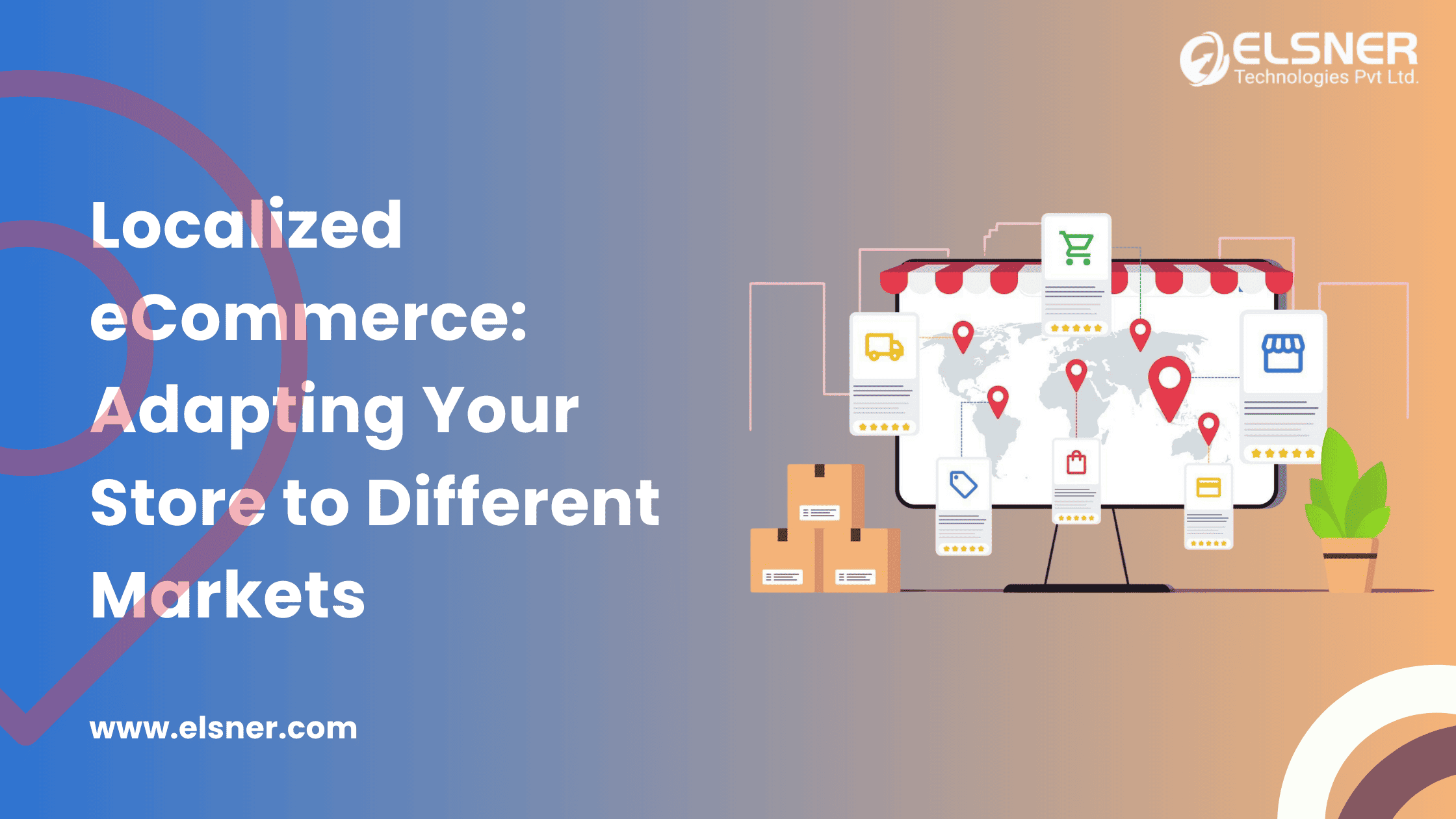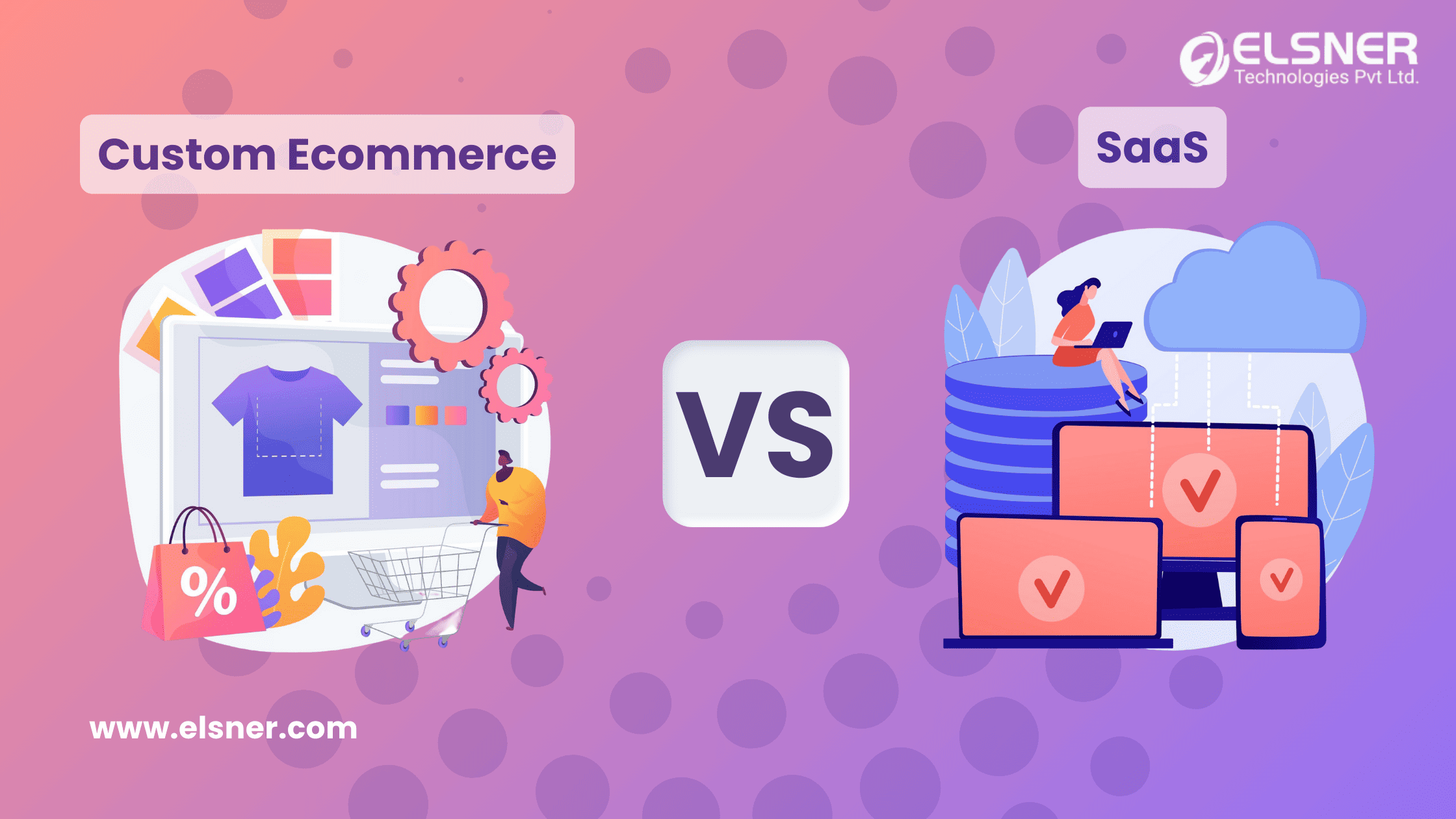- What is a Retail Management System (RMS)?
- Streamlining Inventory Management
- Enhancing Customer Experience
- Benefits of RMS in Enhancing Customer Experience
- Optimizing Sales and Marketing Strategies
- Benefits of RMS in Sales and Marketing
- Streamlining Supply Chain Management
- Benefits of RMS in Supply Chain Management
- Integrating Online and Offline Sales Channels
- Benefits of RMS in Omnichannel Integration
- Enhancing Security and Compliance
- Benefits of RMS in Security and Compliance
- Improving Employee Productivity
- Benefits of RMS in Employee Productivity
- Scalability and Flexibility
- Benefits of RMS in Scalability and Flexibility
- Wrapping Up
Have you ever wondered how the growth of Retail market could affect your Ecommerce business? The global retail market is projected to reach a staggering USD 32.68 trillion in 2024 and is expected to grow at a Compound Annual Growth Rate (CAGR) of 7.65% by 2029 [Mordor Intelligence]. This immense growth signifies the increasing importance of efficient management systems for retailers, especially in the Ecommerce space.
What is a Retail Management System (RMS)?
A Retail Management System (RMS) is a comprehensive software solution designed to manage various aspects of retail operations. It integrates multiple functions, providing a centralized platform for managing inventory, sales, customer relationships, and supply chains.
Key Components of an RMS
- Inventory Management: Monitors stock levels, manages reorders, and prevents overstocking or stockouts.
- Point of Sale (POS) Systems: Facilitates sales transactions, processes payments, and integrates with inventory management.
- Customer Relationship Management (CRM): Tracks customer interactions, preferences, and purchase history to enhance customer service.
- Analytics and Reporting: Provides insights into sales trends, customer behavior, and operational efficiency.
- Supply Chain Management: Manages procurement, supplier relationships, and logistics to ensure timely product availability.
Streamlining Inventory Management
Effective inventory management is crucial for Ecommerce success. An RMS automates inventory tracking, providing real-time updates on stock levels, sales, and reorder requirements.
Benefits of RMS in Inventory Management
- Automated Replenishment: RMS can automatically reorder products when stock levels fall below a certain threshold, preventing stockouts.
- Real-Time Inventory Visibility: Businesses can monitor inventory levels across multiple channels and locations in real-time.
- Reduced Carrying Costs: By optimizing inventory levels, RMS helps reduce the costs associated with excess inventory.
- According to a report by Statista, businesses that implement inventory management systems can reduce stock levels by 10-30% and increase inventory accuracy by up to 50%.
- A study by the Aberdeen Group found that companies with best-in-class inventory management achieve a 2.5% increase in profit margins.

Enhancing Customer Experience
Customer satisfaction is the cornerstone of Ecommerce success. RMS systems help create personalized shopping experiences by leveraging customer data.
Benefits of RMS in Enhancing Customer Experience
- Personalized Recommendations: RMS systems analyze customer purchase history to provide tailored product recommendations.
- Efficient Order Fulfillment: Faster and more accurate order processing improves customer satisfaction.
- Loyalty Programs: RMS can track customer purchases and reward loyal customers, increasing retention rates.
- According to Salesforce, 84% of customers say being treated like a person, not a number, is very important to winning their business.
- Research by Bain & Company shows that a 5% increase in customer retention can lead to a 25-95% increase in profits.
Optimizing Sales and Marketing Strategies
An RMS provides valuable insights into sales trends and customer behavior, enabling businesses to optimize their sales and marketing strategies.
Benefits of RMS in Sales and Marketing
- Data-Driven Decision Making: RMS analytics help identify top-selling products, peak sales times, and customer preferences.
- Targeted Marketing Campaigns: By segmenting customers based on behavior and preferences, businesses can create more effective marketing campaigns.
- Improved Sales Forecasting: RMS provides accurate sales forecasts, helping businesses plan inventory and marketing activities.
- A study by McKinsey found that data-driven organizations are 23 times more likely to acquire customers and 19 times more likely to be profitable.
- According to Forbes, businesses using predictive analytics have 73% higher sales than those that do not.
Streamlining Supply Chain Management
Effective supply chain management ensures that products are available when customers need them, without excess inventory.
Benefits of RMS in Supply Chain Management
- Improved Supplier Relationships: RMS systems help manage supplier contracts and performance, ensuring timely deliveries.
- Enhanced Logistics: RMS optimizes logistics by planning the most efficient routes and schedules.
- Reduced Lead Times: By streamlining procurement processes, RMS reduces the time it takes to restock products.
- According to a report by Deloitte, companies with effective supply chain management achieve 15% lower supply chain costs and 50% faster order-to-delivery times.
- A study by Gartner found that businesses with advanced supply chain capabilities are 2.5 times more likely to report significant sales growth.

Integrating Online and Offline Sales Channels
In today’s omnichannel retail environment, integrating online and offline sales channels is crucial for providing a seamless customer experience. An RMS facilitates this integration by consolidating data and operations across all sales platforms.
Benefits of RMS in Omnichannel Integration
- Unified Customer Data: RMS aggregates customer data from both online and offline channels, providing a comprehensive view of customer behavior and preferences.
- Consistent Inventory Management: Inventory levels are synchronized across all channels, preventing discrepancies and ensuring that products are available wherever customers choose to shop.
- Streamlined Order Fulfillment: Orders can be fulfilled from any location, whether it’s a physical store, warehouse, or directly from suppliers, ensuring faster delivery times.
- According to the Harvard Business Review, customers who use multiple channels spend an average of 4% more in-store and 10% more online than single-channel customers.
- A study by IDC found that retailers who integrate their online and offline channels achieve a 15-20% increase in customer satisfaction.
Enhancing Security and Compliance
Ensuring the security of customer data and compliance with regulations is a critical concern for Ecommerce businesses. An RMS provides robust security features and helps ensure compliance with industry standards and regulations.
Benefits of RMS in Security and Compliance
- Data Encryption: Sensitive customer data is encrypted, protecting it from unauthorized access.
- Compliance Management: RMS systems help businesses comply with regulations such as GDPR, PCI DSS, and others by providing tools for data management and reporting.
- Fraud Detection: Advanced RMS systems include fraud detection capabilities to identify and prevent fraudulent activities.
- According to a report by IBM, the average cost of a data breach is $3.86 million, highlighting the importance of robust security measures.
- A study by the Ponemon Institute found that organizations with a comprehensive security strategy are 2.5 times less likely to experience a data breach.

Improving Employee Productivity
An RMS can also significantly improve employee productivity by automating routine tasks and providing tools that enhance efficiency.
Benefits of RMS in Employee Productivity
- Task Automation: Automates tasks such as inventory updates, sales reporting, and order processing, allowing employees to focus on more strategic activities.
- Enhanced Collaboration: Provides tools for better communication and collaboration among team members.
- Training and Support: RMS systems often include training modules and support resources to help employees quickly adapt to the system.
- According to a report by Deloitte, businesses that invest in automation see a 30% increase in employee productivity.
- A study by McKinsey found that effective collaboration tools can increase employee productivity by up to 25%.
Scalability and Flexibility
As your Ecommerce business grows, your systems need to scale and adapt to new challenges. An RMS provides the scalability and flexibility required to support business growth. For businesses without dedicated operational leadership, engaging a COO service can provide the expertise needed to fully implement and optimize these systems.
Benefits of RMS in Scalability and Flexibility
- Modular Architecture: RMS systems are often modular, allowing businesses to add new functionalities as needed without overhauling the entire system.
- Cloud-Based Solutions: Many RMS systems are cloud-based, offering scalability and remote access capabilities.
- Customizable Features: RMS can be customized to fit the unique needs of different businesses, providing flexibility in operations.
- According to Gartner, 60% of businesses plan to increase their investment in cloud-based solutions to enhance scalability and flexibility.
- A report by Forrester shows that businesses using scalable RMS solutions experience a 20% reduction in IT costs.

Wrapping Up
Implementing a Retail Management System (RMS) can significantly streamline your Ecommerce operations, leading to improved efficiency, customer satisfaction, and profitability. By automating inventory management, enhancing customer experiences, optimizing sales and marketing strategies, and streamlining supply chain management, an RMS provides a comprehensive solution to the challenges faced by Ecommerce businesses.
Investing in an RMS is not just about adopting new technology; it’s about transforming your business to meet the demands of a competitive market and ensuring long-term success. With the right RMS in place, you can achieve operational excellence, provide superior customer experiences, and drive sustainable growth for your Ecommerce business.

About Author
Dipak Patil - Delivery Head & Partner Manager
Dipak is known for his ability to seamlessly manage and deliver top-notch projects. With a strong emphasis on quality and customer satisfaction, he has built a reputation for fostering strong client relationships. His leadership and dedication have been instrumental in guiding teams towards success, ensuring timely and effective delivery of services.




